|
||||
|
|
|
|||
| Home | Subscribe | Back Issues | The Organization | Volunteer | ||||
|
||||
HomeschoolingFostering nature through interest-led learningphotoessay by Kristianna BairdWould it surprise you to know that children are the greatest activists and stewards our country has to offer? A child is a natural activist. As they age, they instinctively know what is "fair" or "right." Most children care deeply about the world they live in, and the creatures they coexist with. Some children, such as mine, are showing more and more interest in the environment and its inhabitants. Because she had some learning difficulties in the traditional classroom setting and a genuine lack of interest in the three R's, we decided it was time for a change to help foster her interests in science and the environment. 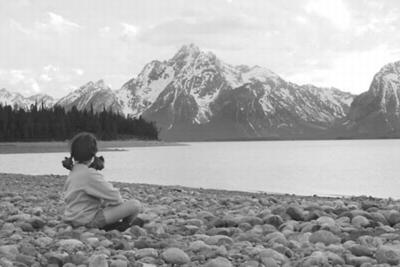
We just finished our first year of homeschooling, but the truth is that none of us are ever finished learning. My daughter, who just recently celebrated her tenth birthday, has a genuine interest in learning. She has a drive that keeps her going back for more. However, it's something that she cannot find in a classroom with desks and a blackboard. It can only be found in something as raw as nature. 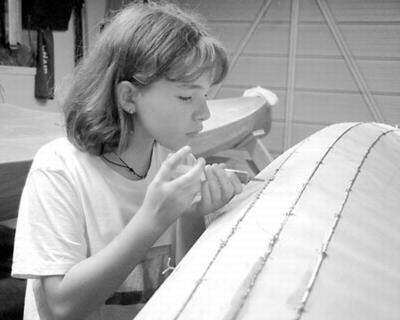
Sometimes she can find it by lying on the grass watching the cumulus clouds float by, naming the layers and making cloud animals. Some days she'll find her interest as she bounds across rock fields, identifying mica, feldspar, and quartz crystals in the boulders. Even the pond in the backyard, with its rocks and plants uprooted from visiting raccoons, becomes an enthralling adventure. At the nature center we view estuary water and watch the cellular creatures swim under the strong power of the microscope. The beach is a special learning place to find abundant sea life to observe. It's a great place to study erosion and the study of tides. We learn a lot on our beach days, including how much water a dog can hold in its fur! 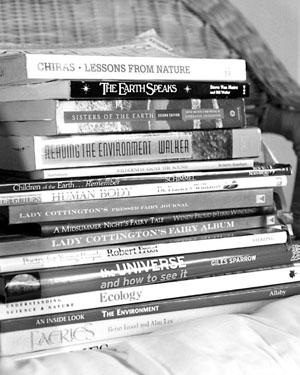
This year we splurged on a National Park annual pass. (This cost about a tenth of the price of a years worth of public school uniforms for our district.) We attend talks with forest rangers to learn about conservation, stewardship, biology, ecology, geology and more. This year we drove to Yellowstone and the Teton Mountain area, which cost us about a third of the price of a Disneyland vacation. Our daughter hiked the trails with vigor. We used binoculars to spot more mammals than could ever be seen behind bars or the glass of a cage in a zoo. As a ranger counted tadpoles on the edge of the Snake River in the Tetons, we learned that the population of toads hasn't been at the normal returning level. The striking scars of fires left in the forests of the Yellowstone were a reminder of the fragility of our environment. The fires taught a lesson of the raw force of nature and the carelessness of humans. Our last night in the Rocky Mountains treated us all to a phenomenal lightning storm. 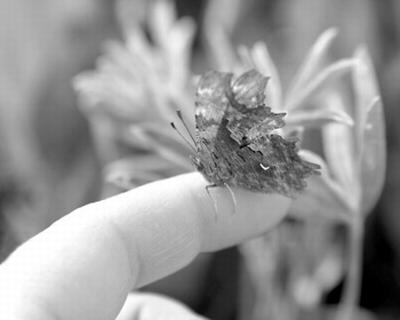
A few days later, she found a science project in her book that explained all about the electrical currents and weather patterns required to create that same very storm. What about math, reading, writing, and art? We multiply the numbers of mosquitoes times their squishy larvae near the edges of ponds and dig out the bug spray in fear of the numbers the answer has revealed. To release creative energy, writing about fairies in the woods and about an idealistic vegetarian orca are her most recent endeavors. On our extended trip our daughter managed to complete the third Harry Potter book (again) and whipped through a 200-page book on a Shoshoni Indian girl in just three days. We have a ready supply of watercolors and colored pencils for art. The most widely used art tool, though, is probably a few sticks and rocks with an endless canvas of beach sand. 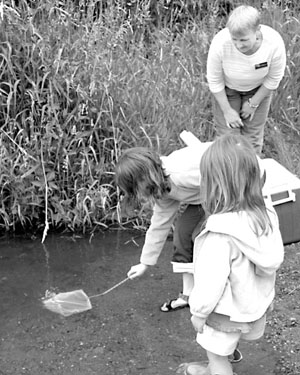
When we started this endeavor last fall, none of us thought we would learn so much. At first I envisioned textbooks of math, grammar, and science. The first few months, we worked our way through thick books, and charted daily temperatures and weather patterns. We structured school during the morning hours, and were careful to touch on every subject each day. Soon we were going for walks to check out the weather first hand, writing about what ever came to mind, and borrowing books by the dozens from the library. With minimal assistance, our ten-year-old daughter is just completing a 13-foot wooden kayak in our garage. Just another tool she can use to explore new learning possibilities. As parents, we'll encourage her and take her to wherever she finds an interest in learning. If it's interesting, it must be worth learning about. Kristianna Baird can be contacted at info@kristiannabaird.com. |
|
